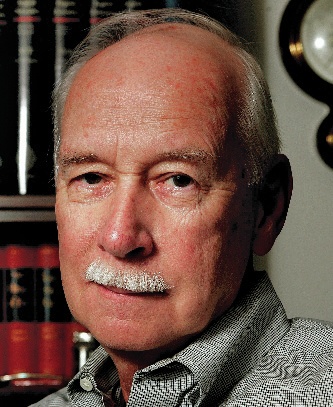Smaller businesses generally have trouble making use of “big data” or the valuable analytics that come with it. Data like that tends to be expensive and the analytics are often difficult to understand.
More importantly, the information contained in big data is not always scaled down and focused enough to address the competitive issues that today’s small businesses face. And, surprisingly, big data on the competition is rarely as timely as what a smaller business can develop on its own.
Most CEOs, managers, and owners of smaller businesses have some knowledge of the competition. The bulk of that knowledge, though, tends to be heavily weighted toward personal experience, and not accumulated in any organized fashion. In the end, it is rarely an integral part of the decision-making process in the business.
A critical factor in the success, even the survival, of today’s smaller businesses is knowledge of the competition.
To succeed in a competitive world, where large sellers often have an insurmountable price advantage, smaller businesses need to know a lot more about what their competitors are doing. And an organized, consistent effort to collect and analyze information on the competition is the key to understanding how your business can successfully compete and prosper.
Some of the information you will collect will be from individuals like your own sales staff, suppliers, and customers. Much of the information they provide will be anecdotal, fragmentary, disorganized, sometimes vague, and sometimes even contradictory — not the stuff of data analytics.
Although it will take some work to extract its value, it is well worth the effort.
Fortunately, there is a useful lesson we can learn from the experience of the Royal Air Force (RAF) during the early, most critical years of World War II.
The full force of Hitler’s Luftwaffe was attacking Britain with the goal of obliterating the RAF, the only remaining obstacle to the Nazi’s planned invasion of the British Isles.
The air war that ensued was a battle for air supremacy, and the RAF faced desperate odds. Short of fighter planes to defend its homeland, the need for accurate data on enemy and RAF plane losses was intense.
Before the days of trigger-activated gunsight cameras, though, the debriefings of adrenaline-filled pilots contained a lot of inaccuracies.
The RAF found out that organizing the information collected into a cohesive whole could provide a level of accuracy greater than the initial reports themselves — in their case providing reasonably precise counts of enemy aircraft losses.
Businesses planning to use information from human beings should keep the RAF’s experience in mind.
Managers should expect the sources to produce a lot of information that needs to be validated, confirmed, and generally “cleaned up” before it is usable. Most of all, it will need to be organized.
A good place to start is by identifying your competition and starting a profile of each one.
Basic information such as business name, location, distance from your sales point (if appropriate), ownership, whether it is a franchise or otherwise connected to other firms, and identification of the owners and management. Much of this information can be obtained from public records.
You should also identify the degree of competition. Are their services or product line identical to yours, or is there just some overlap? Are you both competing for the same target market, or are there differences? For each competitor, is the competition based primarily on price, service, expertise, location or some other factor?
There is a lot of information about your competitors’ target markets and competitive strategy that can be derived from “reverse engineering” their advertisements, website pages and any banner or pop-up ads spotted.
Collecting information from salesmen, from suppliers, from customer comments that they volunteer to your staff, or from other human sources, you will have to separate and extract the useful information from the idle or malicious gossip.
This isn’t as difficult as it sounds, but it takes practice, critical thinking, and, most of all, organizing the information you receive.
As you progress with competitive information gathering, don’t be discouraged by all of the blank spaces in competitor profiles.
You will be surprised by how simply realizing what you need to know — and don’t — will bring that information to the surface. This is a very competitive world. But you can still prosper in it.
James McCusker is a Bothell economist, educator and consultant. He also writes a column for the monthly Herald Business Journal.
Talk to us
> Give us your news tips.
> Send us a letter to the editor.
> More Herald contact information.

























